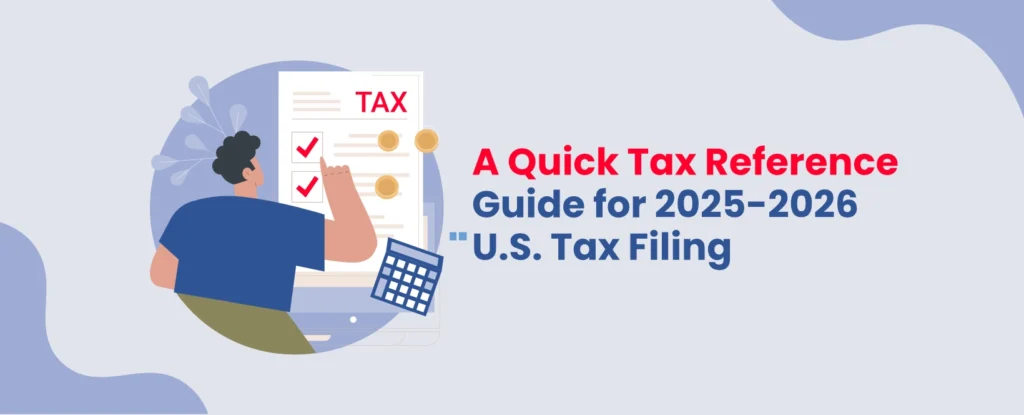Applying deductions can help you reduce your tax bill. In this article, we help you understand what type of deductions to choose.
Did you know that as a taxpayer, you can reduce your tax bill in some ways? Let’s start with the basics. Your income tax is calculated on your Adjusted Gross Income (AGI). However, the IRS allows you to claim certain deductions from your AGI, to help you reduce your tax burden. You can either claim a standard deduction or choose to itemize the deductions if you believe that your actual expenses may be higher than the standard deduction. Let’s break it down for you.
Standard Deduction
The standard deduction is a flat reduction in your Adjusted Gross Income stipulated by tax authorities. This amount is fixed by Congress and changes year on year, usually getting bigger.
The standard deduction amounts per the IRS for the 2023 tax year are:
Single or Married Filing Separately – $13,850
Married Filing Jointly – $27,700
Head of Household – $20,800
Itemized Deductions
The IRS allows certain categories of expenses to be deducted from your AGI that decreases your taxable income and therefore, your tax bill. When you choose to itemize your deductions, you can pick from a list of individual deductions instead of opting for a flat reduction.
Types of Itemized Deductions
The IRS provides a wide range of permissible expenses that can be deducted from your AGI to reduce your tax bill. We list some of the most common itemized deductions.
Unreimbursed Medical and Dental Expenses
If you have spent any money for medical or dental treatment for yourself or immediate family members, it may qualify as an itemized deduction if the total out-of-pocket spend exceeds 7.5% of your AGI. You can either claim this when the treatment is provided or when the expense is incurred. The amount to be claimed during the year is the amount paid (by cash/check or credit card) less the reimbursed portion by the employer/insurance company, only to the extent it exceeds 7.5% of AGI.
Interest Expense
1. Home Mortgage Interest
If you are a homeowner, you can claim deductions for the interest expense incurred either for your main or second home. Loans of up to $750,000 secured by the home and used to buy, build, or substantially improve taxpayers’s homes are deductible only to the extent paid and related to the current period. This is applicable if you are filing taxes jointly with a spouse. In case you are filing as an individual, this cap is reduced to 375,000.
2. Investment Interest Expense
Interest paid or accrued on a loan or part of a loan that is allocable to property held for investment (Property that produces income from interest, dividends, or annuities; provided the income is not derived in the ordinary course of business. It includes interest expense from Schedule K-1 received from S-Corp, Partnerships, estates & trusts. Interest expense to purchase tax-free bonds is not deductible. Unused may be carried forward indefinitely.
3. State & Local Tax (SALT) Deduction
The SALT (State and Local Tax) deduction allows taxpayers in the United States to deduct certain state and local taxes, such as property taxes and either income or sales taxes, from their federal taxable income. However, the Tax Cuts and Jobs Act of 2017 capped this deduction at $10,000
4. Charitable Donations
Good deeds can fetch you some tax benefits too. If you have donated to a qualified domestic organization, you can claim up to 60% of AGI. Contributions can be paid in the form of cash/check or Property.
How to Choose Between Standard and Itemized Deductions?
Running tax calculations with both options is a good idea when you are faced with the decision of whether to itemize your deductions. If the total value of itemized deductions is higher than the permitted standard deduction for the tax year in question, then you can choose to itemize.
How Does It Help to Itemize Your Deductions?
As we said before, itemizing deductions may add up to more than the standard deduction permitted by law. The more you deduct, the less you pay in taxes. If you think your expenses under some of these categories could exceed the standard deduction, itemizing deductions can be advantageous.
Are There Any Disadvantages?
Like for everything else, itemizing your deductions is more time-consuming and can mean that you spend more time on your tax return. The rules can be confusing and you will need to understand them in depth to be able to maximize your tax savings. Additionally, it is a good idea to keep documentary evidence for all deductions you are claiming as the IRS may choose to audit your return at any time.
Make an Informed Decision!
Whether you choose to claim standard deductions or itemize them, do your research, understand the tax laws, and run simulations before making a decision.
Connect with expert advisors for informed decision-making. By consulting with professionals, you can ensure that you maximize your tax savings and comply with all relevant regulations. Don’t leave money on the table—take the time to evaluate your options and leverage Knowvisory’s Tax Planning & Return Preparation services to make the best decision for your financial future. Contact us today for expert guidance and start optimizing your tax strategy now!


